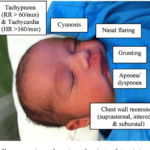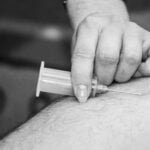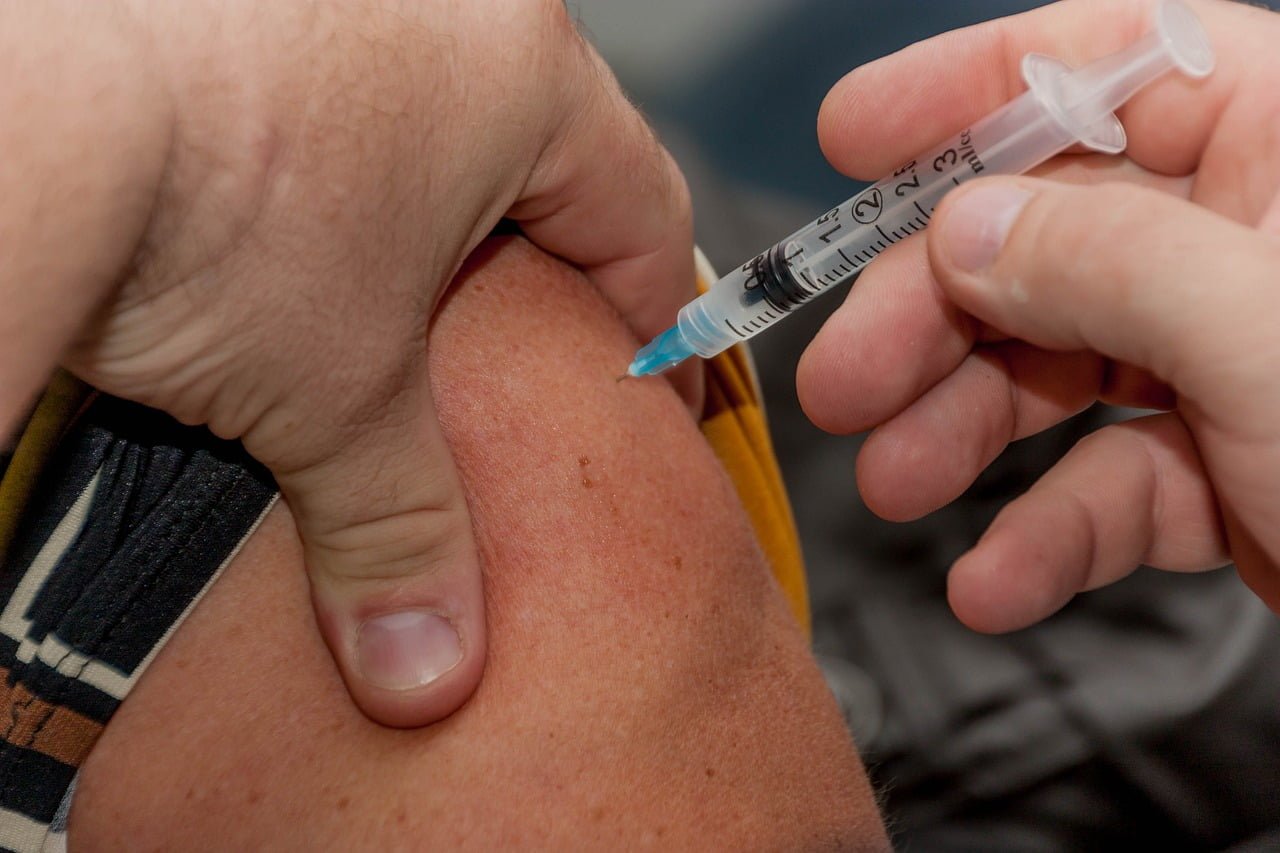
In this article, you will learn about the crucial vaccinations that are essential in protecting children from respiratory infections. With the ongoing global health crisis, it is paramount to prioritize the health and well-being of our little ones. By understanding these immunizations, you can take proactive steps towards safeguarding your child’s respiratory health and ensuring their overall wellness. So, let us delve into the importance of vaccinations and the key ones that play a significant role in preventing respiratory infections.
Pneumococcal Conjugate Vaccine (PCV)
Protection against pneumonia
Prevention of meningitis
Reduction of ear infections
The Pneumococcal Conjugate Vaccine (PCV) is an essential vaccination for children to prevent respiratory infections. This vaccine offers protection against pneumonia, one of the leading causes of illness and death in children worldwide. Pneumonia is a severe respiratory infection that affects the lungs and can result in difficulty breathing, chest pain, and fever. Children who receive the PCV are less likely to develop pneumonia, and even if they do, it is usually milder and less severe.
In addition to its efficacy against pneumonia, the PCV also helps prevent meningitis, an inflammation of the membranes surrounding the brain and spinal cord. Meningitis can lead to serious complications, including brain damage and even death. By getting vaccinated with the PCV, you are reducing the risk of developing this potentially life-threatening condition.
Furthermore, the PCV has been shown to reduce the incidence of ear infections in children. Ear infections can cause pain, hearing loss, and in some cases, the need for surgery. By receiving the PCV, you are providing yourself with an added layer of protection against these common and often painful infections. It is important to remember that while the PCV is highly effective, it does not protect against all strains of pneumonia, meningitis, or ear infections. However, it does significantly reduce the risk of infection and its associated complications.
Haemophilus Influenzae Type B (Hib) Vaccine
Prevention of meningitis and pneumonia
Protection against epiglottitis
Reduction of severe throat infections
The Haemophilus Influenzae Type B (Hib) vaccine is another crucial vaccination to prevent respiratory infections in children. This vaccine offers protection against meningitis, a severe infection that can cause swelling of the brain and spinal cord. Meningitis can lead to permanent disability, seizures, and even death. By getting vaccinated with the Hib vaccine, you are significantly reducing the risk of developing this dangerous condition.
In addition to preventing meningitis, the Hib vaccine also protects against pneumonia. Pneumonia is a common respiratory infection that can cause high fever, cough, and breathing difficulties. By receiving the Hib vaccine, you are less likely to develop pneumonia and its associated complications.
The Hib vaccine is also effective in preventing epiglottitis, a potentially life-threatening infection that affects the epiglottis, a small flap of tissue at the base of the tongue. Epiglottitis can cause difficulty breathing, swallowing, and can lead to respiratory failure if not treated promptly. By getting vaccinated, you are protecting yourself against this serious respiratory infection.
Furthermore, the Hib vaccine has been shown to reduce the incidence of severe throat infections. These infections can cause pain, difficulty swallowing, and in some cases, abscess formation. By receiving the Hib vaccine, you are reducing the risk of developing these uncomfortable and sometimes serious infections.

Diphtheria, Tetanus, and Pertussis (DTaP) Vaccine
Prevention of diphtheria
Protection against tetanus
Reduction of pertussis (whooping cough)
The Diphtheria, Tetanus, and Pertussis (DTaP) vaccine is a crucial immunization to prevent respiratory infections in children. This vaccine offers protection against three important diseases: diphtheria, tetanus, and pertussis.
Diphtheria is a bacterial infection that primarily affects the throat and tonsils. It can cause a thick gray coating in the throat, difficulty breathing, and even heart and nerve damage. By receiving the DTaP vaccine, you are preventing the occurrence of diphtheria and its potentially severe complications.
Tetanus, also known as lockjaw, is caused by bacteria that enter the body through a wound or cut. It can cause muscle stiffness, spasms, and difficulty swallowing and breathing. Tetanus is a serious and often fatal condition, but it can be prevented with the DTaP vaccine. By getting vaccinated, you are ensuring protection against this dangerous disease.
Pertussis, commonly known as whooping cough, is a highly contagious respiratory infection. It causes severe coughing spells, difficulty breathing, and in some cases, rib fractures. Pertussis can be especially dangerous for infants and young children. By receiving the DTaP vaccine, you are reducing the risk of developing pertussis and its associated complications.
It is important to note that the immunity provided by the DTaP vaccine can decrease over time, which is why booster shots are recommended during adolescence and adulthood. By staying up to date with your vaccinations, you are ensuring continued protection against these respiratory infections.
Influenza Vaccine (Flu Shot)
Prevention of seasonal influenza
Reduction of flu-related respiratory infections
The Influenza vaccine, also known as the flu shot, is a critical vaccine to prevent respiratory infections, specifically seasonal influenza. Influenza, or the flu, is a common respiratory infection that can cause high fever, body aches, and respiratory symptoms. In severe cases, it can lead to pneumonia and even death.
The Influenza vaccine is formulated each year to protect against the most prevalent strains of the influenza virus. By receiving the flu shot annually, you are significantly reducing your chances of contracting the flu and experiencing its associated symptoms. Even if you do contract the flu after vaccination, the severity of the illness is often milder in vaccinated individuals.
In addition to preventing the flu, the vaccine also reduces the overall burden of flu-related respiratory infections. By getting vaccinated, you are contributing to the community’s herd immunity, protecting those who are more vulnerable to severe complications, such as young children, the elderly, and individuals with weakened immune systems.
It is important to remember that the Influenza vaccine needs to be administered annually due to the constantly evolving nature of the influenza virus. By making it a yearly habit to get vaccinated, you are safeguarding yourself and those around you from this contagious and potentially serious respiratory infection.
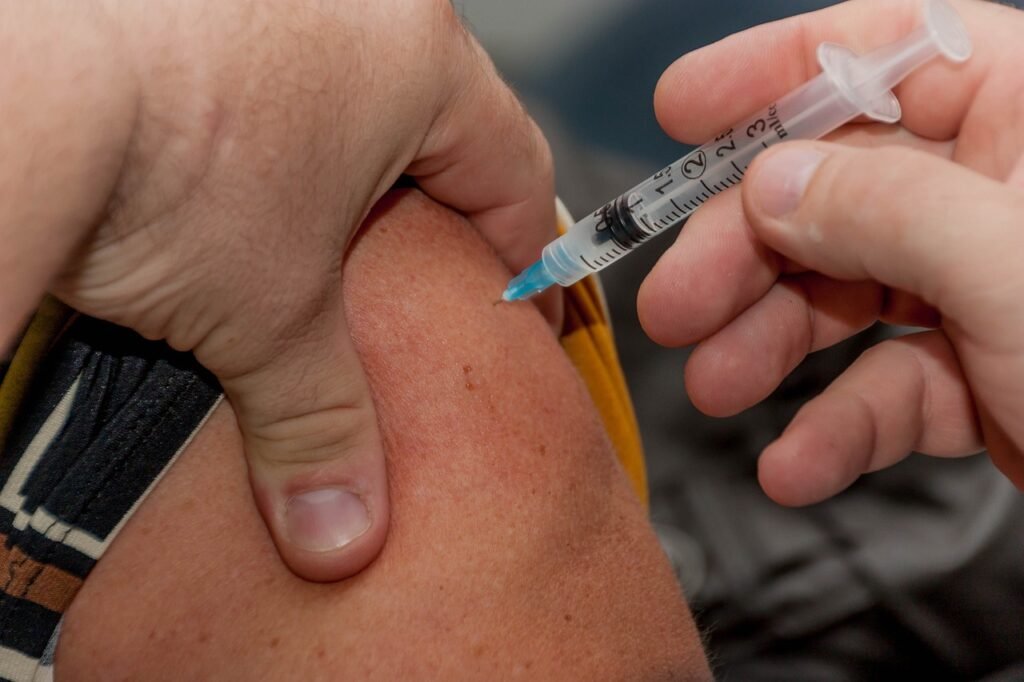
Measles, Mumps, and Rubella (MMR) Vaccine
Protection against measles
Prevention of mumps
Reduction of rubella
The Measles, Mumps, and Rubella (MMR) vaccine is a vital immunization to prevent respiratory infections caused by these three highly contagious viruses. The MMR vaccine provides protection against measles, mumps, and rubella, all of which can cause significant respiratory symptoms and complications.
Measles is a viral infection that spreads through respiratory droplets. It causes high fever, cough, and a characteristic rash. Measles can lead to complications such as pneumonia, ear infections, and encephalitis, which is inflammation of the brain. By getting vaccinated with the MMR vaccine, you are safeguarding yourself against this potentially severe respiratory infection.
Mumps is another viral infection that primarily affects the salivary glands, causing swelling and pain in the jaw area. It can also lead to complications such as meningitis and inflammation of the testicles or ovaries. By receiving the MMR vaccine, you are preventing the occurrence of mumps and its associated respiratory symptoms and complications.
Rubella, also known as German measles, is a viral infection that causes a rash, fever, and swollen lymph nodes. Rubella can be especially dangerous for pregnant women, as it can cause birth defects and fetal complications. By getting vaccinated, you are reducing the risk of developing rubella and protecting yourself and others, especially those who cannot safely receive the vaccine, such as newborns or individuals with weakened immune systems.
The MMR vaccine is a safe and effective way to prevent these three respiratory infections, promoting the well-being and health of both individuals and communities.
Varicella (Chickenpox) Vaccine
Prevention of chickenpox
Reduction of severe respiratory infections associated with chickenpox
The Varicella vaccine, also known as the chickenpox vaccine, is an essential immunization to prevent respiratory infections caused by the varicella-zoster virus. Chickenpox is a highly contagious viral infection that causes a characteristic rash, fever, and respiratory symptoms.
By receiving the Varicella vaccine, you are protecting yourself against the development of chickenpox. This infection can be particularly severe in older children and adults, leading to complications such as pneumonia and encephalitis. The vaccine significantly reduces the risk of contracting chickenpox and experiencing its associated respiratory symptoms.
In addition to preventing chickenpox, the Varicella vaccine also reduces the incidence of severe respiratory infections associated with the virus. By getting vaccinated, you are contributing to the overall reduction of varicella-related respiratory illnesses, ensuring the health and well-being of yourself and those around you.
It is important to remember that the Varicella vaccine is not 100% effective but significantly reduces the severity of breakthrough infections. If you do contract chickenpox after vaccination, the illness is usually milder and less severe than if you were unvaccinated. By receiving the Varicella vaccine, you are protecting yourself and the community against this contagious respiratory infection.
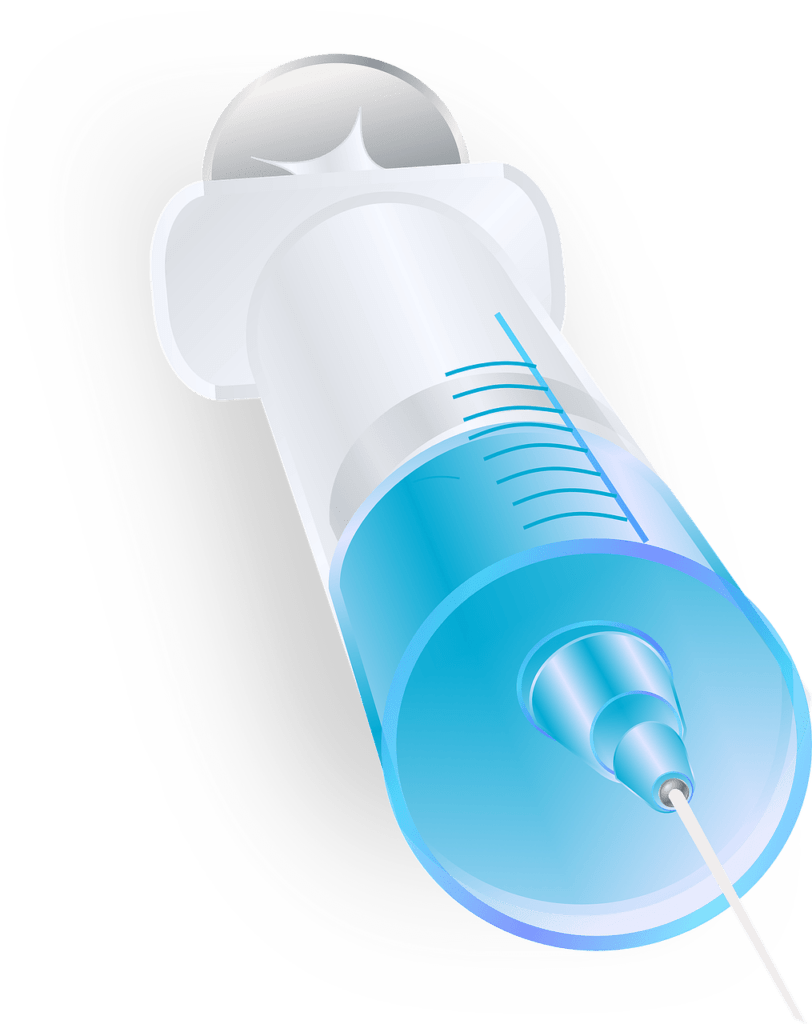
Hepatitis B Vaccine
Prevention of hepatitis B infection
Protection against liver disease and liver cancer
The Hepatitis B vaccine is a crucial immunization to prevent respiratory infections caused by the hepatitis B virus. Hepatitis B is a viral infection that primarily affects the liver, causing inflammation and potentially leading to liver disease and liver cancer.
By receiving the Hepatitis B vaccine, you are significantly reducing the risk of contracting this serious respiratory infection. Hepatitis B is primarily transmitted through contact with infected blood or other body fluids. Vaccination provides protection against this mode of transmission, safeguarding you from the risk of infection.
In addition to preventing hepatitis B infection, the vaccine also offers protection against liver disease and liver cancer. Chronic hepatitis B infection can lead to cirrhosis, liver failure, and an increased risk of developing liver cancer. By getting vaccinated, you are reducing your chances of experiencing these severe complications associated with hepatitis B.
It is important to note that the Hepatitis B vaccine is typically administered in a series of doses, with booster shots recommended for certain populations. By completing the recommended vaccination schedule, you are ensuring long-term protection against respiratory infections caused by the hepatitis B virus.
Rotavirus Vaccine
Prevention of severe diarrhea and vomiting
Reduction of rotavirus-related respiratory infections
The Rotavirus vaccine is a vital immunization to prevent respiratory infections caused by the rotavirus. Rotavirus is a highly contagious virus that primarily affects infants and young children, causing severe diarrhea and vomiting.
By receiving the Rotavirus vaccine, you are significantly reducing the risk of developing rotavirus infection. This highly contagious respiratory infection spreads through contact with infected feces or contaminated surfaces. Vaccination provides important protection against this mode of transmission, safeguarding infants and young children from severe respiratory symptoms.
In addition to preventing severe diarrhea and vomiting, the Rotavirus vaccine also contributes to the overall reduction of rotavirus-related respiratory infections. By getting vaccinated, you are promoting the well-being and health of young children, preventing the spread of this highly contagious virus, and reducing the burden on healthcare systems.
It is important to remember that the Rotavirus vaccine is typically administered in a series of doses, starting in infancy. By following the recommended vaccination schedule, you are ensuring long-term protection against this common and potentially severe respiratory infection.
Pertussis (Tdap) Vaccine
Protection against pertussis
Prevention of severe respiratory infections
The Pertussis (Tdap) vaccine is a crucial immunization to prevent respiratory infections caused by the bacterium Bordetella pertussis. Pertussis, also known as whooping cough, is a highly contagious respiratory infection that causes severe coughing spells and difficulty breathing.
By receiving the Tdap vaccine, you are protecting yourself against pertussis and its associated respiratory symptoms. Vaccination provides immunity against this highly contagious bacterial infection, significantly reducing the risk of transmission and contraction.
In addition to protecting against pertussis, the Tdap vaccine also prevents the occurrence of severe respiratory infections. Whooping cough can lead to complications such as pneumonia, seizures, and even death, particularly in infants and young children. By getting vaccinated, you are ensuring the health and well-being of yourself and those around you.
It is important to note that the immunity provided by the Tdap vaccine can decrease over time, which is why booster shots are recommended during adolescence and adulthood. By staying up to date with your vaccinations, you are ensuring continued protection against this contagious and potentially serious respiratory infection.
Meningococcal Vaccine
Prevention of meningococcal disease and meningitis
The Meningococcal vaccine is an essential immunization to prevent respiratory infections caused by the bacteria Neisseria meningitidis. Meningococcal disease is a severe bacterial infection that can cause meningitis, an inflammation of the membranes surrounding the brain and spinal cord.
By receiving the Meningococcal vaccine, you are significantly reducing the risk of contracting this dangerous respiratory infection. Vaccination provides important protection against meningococcal bacteria, safeguarding you from the potentially devastating effects of meningitis.
Meningococcal disease can spread through respiratory droplets or direct contact with an infected individual. By getting vaccinated, you are reducing the risk of transmission and protecting yourself and others from this highly contagious respiratory infection.
It is important to remember that there are different types of meningococcal vaccines available, and the appropriate one for you may vary based on factors such as age and travel history. By consulting with your healthcare provider and following their recommendations, you are ensuring comprehensive protection against meningococcal disease and meningitis.
In conclusion, vaccinations play a vital role in preventing respiratory infections in children. The Pneumococcal Conjugate Vaccine (PCV), Haemophilus Influenzae Type B (Hib) Vaccine, Diphtheria, Tetanus, and Pertussis (DTaP) Vaccine, Influenza Vaccine (Flu Shot), Measles, Mumps, and Rubella (MMR) Vaccine, Varicella (Chickenpox) Vaccine, Hepatitis B Vaccine, Rotavirus Vaccine, Pertussis (Tdap) Vaccine, and Meningococcal Vaccine all offer specific and essential protection against various respiratory infections.
By ensuring children are up to date with their immunizations, we can significantly reduce the incidence of respiratory infections and their associated complications. Vaccines are a safe and effective way to protect against these infections, promoting the health, well-being, and longevity of children. Speak with your healthcare provider to ensure you and your child are up to date with the recommended vaccines and help build a healthier and safer community.



